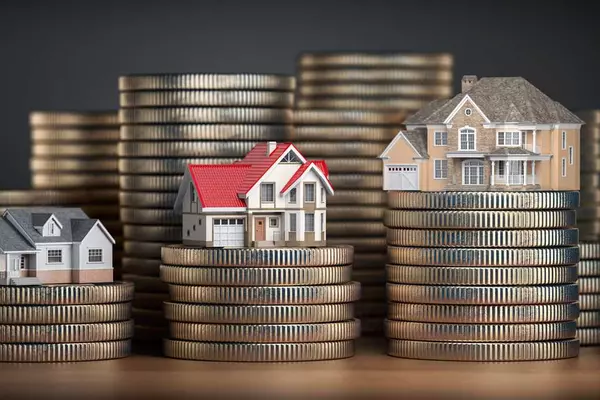Two Reasons Why the Housing Market Won't Crash
In recent months, many have speculated about the potential for a housing market crash. With rising interest rates and economic uncertainties, it’s natural to wonder about the stability of real estate investments. However, despite these concerns, two key factors suggest that the housing market is not on the brink of a crash: persistent demand outstripping supply and low unemployment rates.
### Demand Outstripping Supply
One of the most significant indicators of a healthy housing market is the balance between supply and demand. Currently, demand for homes remains robust, while supply continues to lag behind. According to recent data from the National Association of Realtors (NAR), inventory levels are at historic lows. This scarcity has created a competitive environment for buyers, driving prices upward and making it difficult for many to find suitable properties.
The reasons behind this high demand are multifaceted. First, millennials—who are now entering their prime homebuying years—are increasingly looking to purchase homes. This demographic shift is leading to a surge in first-time buyers eager to invest in real estate. Additionally, remote work trends have allowed individuals to seek homes in more desirable locations, further increasing competition.
On the other hand, new construction has not kept pace with this rising demand. Supply chain disruptions and labor shortages have hindered builders' ability to deliver new homes at the necessary rate. Consequently, existing homes are flying off the market quickly, often receiving multiple offers within days of listing. This imbalance creates upward pressure on home prices, which can deter potential buyers but also indicates a strong market.
Even as the market moves toward balance, these are still within historic and organic market shifts.
### Low Unemployment Rates
Another critical factor supporting the housing market is the current state of employment in the economy. Despite fears of recession or economic downturns, unemployment rates remain historically low. According to recent reports from the Bureau of Labor Statistics (BLS), unemployment is hovering around 3.5%, which is significantly lower than during previous economic downturns.
Low unemployment translates into greater financial stability for many households. When people feel secure in their jobs, they are more likely to make significant financial commitments like purchasing a home. Additionally, with wage growth occurring in various sectors, consumers have more disposable income to allocate toward housing costs.
This stability also plays a vital role in maintaining buyer confidence. Even as interest rates rise, many individuals see homeownership as a long-term investment worth pursuing despite short-term fluctuations in mortgage costs. Buyers recognize that owning a home can provide financial security and build equity over time—a compelling reason to enter the market even amid uncertainties.
### The Bigger Picture
While some may argue that rising interest rates could dampen buyer enthusiasm or lead to an eventual market correction, it’s essential to consider broader economic trends. Historically low inventory levels and sustained demand create an environment where price declines are unlikely in the immediate future.
Moreover, real estate has always been cyclical; markets experience ups and downs over time. However, current conditions suggest that we are not on the verge of a crash akin to what was witnessed during the 2008 financial crisis. Back then, rampant speculation and subprime lending practices fueled an unsustainable bubble that eventually burst. Today’s market is characterized by more stringent lending standards and responsible borrowing practices.
### Implications for Sellers
For sellers in today’s market, these dynamics present unique opportunities. With fewer homes available for sale compared to potential buyers actively searching for properties, sellers can often command higher prices and enjoy quicker sales times than in more balanced markets.
Sellers who wait too long might miss out on favorable conditions; as inventory gradually increases or economic conditions shift, they may find themselves facing increased competition or declining offers down the line.
### Implications for Buyers
For buyers navigating this competitive landscape, understanding these trends can help inform their strategies. It’s crucial for buyers to be prepared financially by getting pre-approved for mortgages and being ready to act quickly when they find a property they like.
Additionally, potential buyers should consider working with experienced real estate professionals who can help them navigate this challenging environment effectively.
### Conclusion
While there may be valid concerns regarding fluctuations within the housing market due to rising interest rates or economic uncertainty, two fundamental factors—strong demand relative to supply and low unemployment—suggest that we are unlikely to see a crash similar to past downturns anytime soon.
As both sellers and buyers adapt their strategies in response to these dynamics, staying informed about real estate news will be essential for making sound decisions moving forward in this evolving landscape. The current climate presents both challenges and opportunities; understanding these elements will empower participants in this ever-important sector of our economy.
Recent Posts











